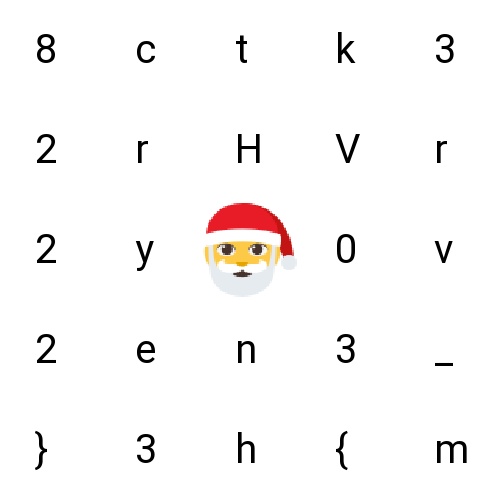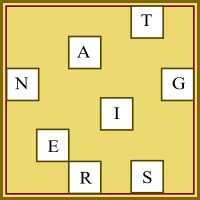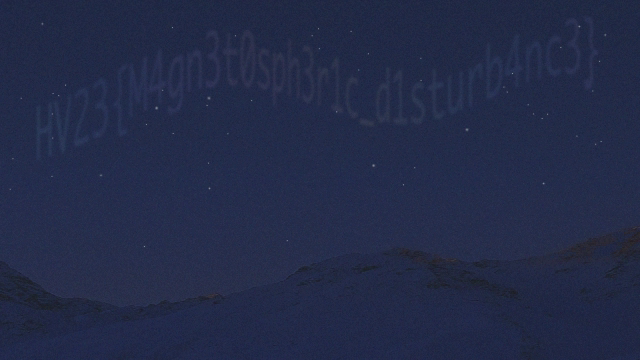Santa has heard that some kids appreciate a video game as a christmas gift. He would rather have the kids solve some CTF challenges, so he took some inspiration and turned it into a challenge. Can you save the princess?
We are given a binary that asks for a password. A quick scan of the control flow graph in cutter reveals a strcmp with mario:
rizin -A -e 'scr.color=0' -qc 'pdb @ dbg.main+0xd6' bowser.elf
: │ 0x000013e6 mov rax, qword [argv] ; bowser.c:46
: │ 0x000013ea add rax, 8
: │ 0x000013ee mov rax, qword [rax]
: │ 0x000013f1 lea rsi, str.mario ; 0x36bd ; "mario" ; const char *s2
: │ 0x000013f8 mov rdi, rax ; const char *s1
: │ 0x000013fb call sym.imp.strcmp ; int strcmp(const char *s1, const char *s2)
: │ 0x00001400 test eax, eax
: │ ┌─< 0x00001402 je 0x1417
Trying this password, the binary still outputs no flag:
./bowser.elf mario | tail -n1
: Sorry, your flag is in another castle.
Looking back at the disassembly, in the begining of main, the local variable flag is filled with a lot of data:
rizin -A -e 'scr.color=0' -qc 'pdb @ dbg.main' bowser.elf
; DATA XREF from entry0 @ 0x10e1
;-- main:
┌ int dbg.main(int argc, char **argv);
│ ; arg char **argv @ stack - 0x88
│ ; arg int argc @ stack - 0x7c
│ ; var uint8_t *c @ stack - 0x70
│ ; var uint8_t [73] flag @ stack - 0x68
│ ; var int64_t canary @ stack - 0x10
│ 0x00001310 endbr64 ; bowser.c:37 ; int main(int argc, char **argv);
│ 0x00001314 push rbp
│ 0x00001315 mov rbp, rsp
│ 0x00001318 add rsp, 0xffffffffffffff80
│ 0x0000131c mov dword [argc], edi ; argc
│ 0x0000131f mov qword [argv], rsi ; argv
│ 0x00001323 mov rax, qword fs:[0x28]
│ 0x0000132c mov qword [canary], rax
│ 0x00001330 xor eax, eax
│ 0x00001332 movabs rax, 0x86dfd3868d8d90ac ; bowser.c:39
│ 0x0000133c movabs rdx, 0x989e9399df8d8a90
│ 0x00001346 mov qword [flag[0]], rax
│ 0x0000134a mov qword [flag[8]], rdx
│ 0x0000134e movabs rax, 0x9edf9196df8c96df
│ 0x00001358 movabs rdx, 0x9cdf8d9a978b9091
│ 0x00001362 mov qword [flag[16]], rax
│ 0x00001366 mov qword [flag[24]], rdx
│ 0x0000136a movabs rax, 0xb7ffd19a938b8c9e
│ ; DATA XREF from dbg.bowser @ 0x1205
│ 0x00001374 movabs rdx, 0xa08a90a684cccda9
│ 0x0000137e mov qword [flag[32]], rax
│ 0x00001382 mov qword [flag[40]], rdx
│ 0x00001386 movabs rax, 0x899eaca09a899eb7
│ 0x00001390 movabs rdx, 0xafa09a978ba09b9a
│ 0x0000139a mov qword [flag[48]], rax
│ 0x0000139e mov qword [flag[56]], rdx
│ 0x000013a2 movabs rax, 0x828c8c9a9c91968d
│ 0x000013ac mov qword [flag[64]], rax
│ 0x000013b0 mov byte [flag[72]], 0
│ 0x000013b4 mov eax, 0 ; bowser.c:41
│ 0x000013b9 call dbg.bowser
│ 0x000013be cmp dword [argc], 2 ; bowser.c:42
│ ┌─< 0x000013c2 je 0x13e6And this data is then inverted later on:
rizin -A -e 'scr.color=0' -qc 'pdb @ dbg.main+0x111' bowser.elf
: │ 0x00001421 mov rax, qword [c] ; bowser.c:52
: │ 0x00001425 movzx eax, byte [rax]
: │ 0x00001428 not eax
: │ 0x0000142a mov edx, eax
: │ 0x0000142c mov rax, qword [c]
: │ ; DATA XREF from dbg.bowser @ 0x1211
: │ 0x00001430 mov byte [rax], dl
: │ 0x00001432 add qword [c], 1 ; bowser.c:51
The above assembly is executed in a loop and c points to flag in the beginning.
Looking at the data, 0xb7ffd19a938b8c9e contains a ff byte, which inverted is a null byte, causing puts to stop printing. To extract the flag, I used the following monstrosity:
xxd -c2 -p $elf \
| sed -n '/48b/,+4{/^4/D;p}' \
| tr 0-9a-f fedcba9876543210 \
| xxd -p -r \
| cut -b40-sourceThe command matches the movabs instructions used to load the data in a hex dump of the binary and uses sed to extract the 8 bytes encoding the immediate value. tr is used to invert the hex data. Running it, gives the flag:
nix run git+https://git.sr.ht/~lgcl/ctf-notes\?ref=refs/tags/hv23#hv23.day-04
: HV23{You_Have_Saved_the_Princess}

